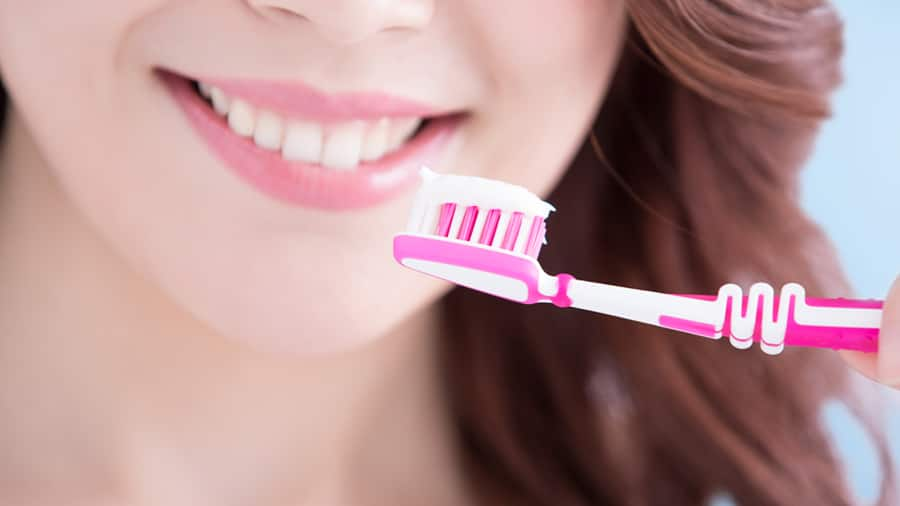-
-

ADULT ORTHODONTICS
Should You Use Mouthwash Before or After Brushing?Brushing and flossing are the foundation of a good oral hygiene routine, but mouthwash can also be a useful addition...

SELECTING DENTAL PRODUCTS
Soft Vs. Hard Toothbrush: Which One Should You Use?The toothbrush has come a long way. As the American Dental Association (ADA) notes...
-
Science & Innovation
- Oral Health and Dental Care | Colgate®
- Oral Health
- Can You Cure Tooth Decay (Cavities) Naturally?


Cavities are a common dental issue and you may wonder if there's a way to avoid getting your cavity filled by your dentist. Science hasn't yet revealed how to heal cavities naturally, though a rigorous oral care regimen can prevent cavity formation.
What Causes Cavities?
Cavities are areas of tooth decay. They can appear on any part of a tooth including the root, though the most common areas are on the chewing surfaces of teeth at the back of the mouth and near the gumline. Cavities form gradually. When you eat, the bacteria in your mouth break down sugars and starches in food and excrete an acid that weakens tooth enamel. The damage occurs below the tooth surface at first, but if it continues and the enamel breaks down entirely, a cavity appears.
What Happens to Untreated Cavities?
Once a tooth has a cavity, only a dentist can treat it. If it's left untreated, the cavity becomes larger and can cause more serious dental problems. If the decay spreads to the center of the tooth and reaches the sensitive nerves located there, the tooth root can become infected or a painful abscess could appear in the gum. To fix the problem, the patient may need root canal work, oral surgery or a tooth extraction.
It's important to visit your dentist regularly so any cavities you develop can be treated before they cause more serious issues in the mouth.
Do Cavities Heal Naturally?
Although the early stages of tooth decay can be reversed, cavities don't heal naturally. According to the Mayo Clinic, professional fluoride treatments can repair weakened enamel and reverse a cavity in its earliest stages. The dentist applies the fluoride in a liquid, gel, varnish or foam directly to the tooth surface.
Once a cavity has progressed, however, a dentist will need to treat it by applying a filling.
Does a Change in Diet Help?
Improving your diet reduces the amount of acids on your tooth enamel and may help prevent cavities from forming. The National Institutes of Health advises patients to avoid eating sugary and starchy foods like cookies, candy and bread. You should also drink less soda, juice and milk. Try not to snack between meals to give the teeth time to recover from the acid exposure. Keep in mind that a better diet can't reverse tooth decay that has already begun.
Although dentists don't know how to heal cavities naturally, maintaining a proper oral care routine will keep your teeth strong and healthy. Drink your local municipal water if it's fluoridated and brush your teeth twice a day with a fluoride toothpaste. Visit your dentist regularly so they can check for cavities and treat them effectively.
Related Products

Helping dental professionals
More professionals across the world trust Colgate. Find resources, products, and information to give your patients a healthier future











